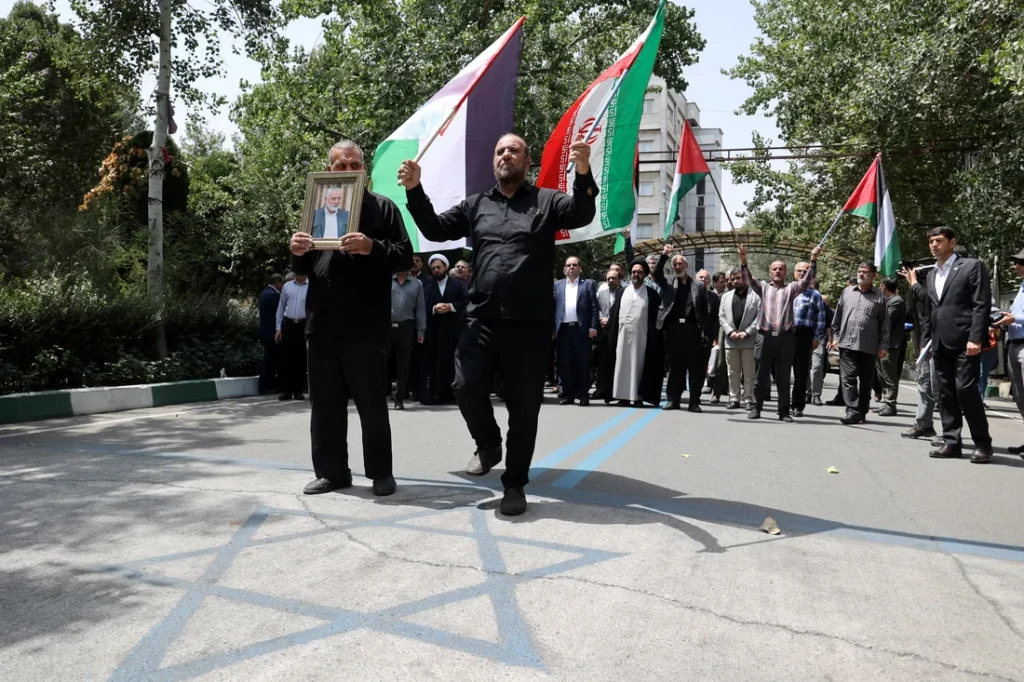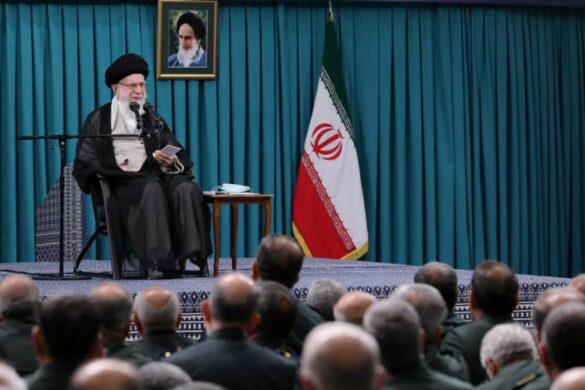Iran’s Supreme Leader Ali Khamenei stated that Israel had paved the way for “harsh punishment for itself” following the assassination of Hamas leader Ismail Haniyeh in Tehran early Wednesday morning. The attack, which has heightened fears of a broader Middle East conflict, drew threats of revenge on Israel.
Hamas and Iran’s Revolutionary Guards confirmed Haniyeh’s death, which occurred hours after he attended a swearing-in ceremony for Iran’s new president. While the strike on Haniyeh was widely attributed to Israel, Prime Minister Benjamin Netanyahu’s government has neither confirmed responsibility nor commented on the killing.
Haniyeh, typically based in Qatar, was killed by a missile strike in a state guesthouse in Tehran. Khalil Al-Hayya, a senior Hamas official, shared that witnesses saw the missile hit Haniyeh directly. An investigation by Iranian authorities is pending.
As the face of Hamas’s international diplomacy during the ongoing war in Gaza, Haniyeh had been involved in indirect talks for a ceasefire. His assassination follows Israel’s claim of killing Hezbollah’s senior military commander in Beirut in retaliation for an attack on the Israeli-occupied Golan Heights.
In a televised statement, Netanyahu did not address Haniyeh’s death directly but mentioned recent Israeli actions against Hamas and Hezbollah, stating Israel’s readiness to respond to any threats.
The assassination of Haniyeh has dealt a blow to potential ceasefire agreements in the nearly 10-month-old Gaza conflict. Hamas vowed retaliation, and Iran declared three days of national mourning, holding the U.S. partly responsible due to its support for Israel.
Khamenei emphasized that Israel had invited severe consequences and that avenging Haniyeh’s death was Tehran’s duty. Iranian forces have already conducted strikes on Israel during the Gaza war.
Despite these events, Israeli spokesperson David Mencer reaffirmed Israel’s commitment to Gaza ceasefire negotiations and the release of Israeli hostages.
U.S. Secretary of State Antony Blinken, avoiding direct comments on Haniyeh’s assassination, emphasized the importance of a Gaza ceasefire to prevent regional escalation. Qatar and Egypt condemned the killing, questioning Israel’s willingness to de-escalate tensions.
Palestinian President Mahmoud Abbas and factions in the West Bank called for demonstrations, while reactions in Israel were positive, viewing the assassination as a significant victory against Hamas. In contrast, Gaza residents feared that Haniyeh’s death would extend the conflict.
Khaled Meshaal, Haniyeh’s deputy, is expected to succeed him. Known for his regional influence and previous survival of an assassination attempt, Meshaal’s leadership could impact Hamas’s role in the Middle East conflict.
Haniyeh, appointed as Hamas’s leader in 2017, moved between Turkey and Qatar to engage in diplomatic efforts. His assassination follows the earlier killing of his deputy, Saleh Al-Arouri, by Israel, leaving Yehya Al-Sinwar and Zaher Jabarin as key leaders in hiding.
The conflict, triggered by a Hamas-led attack on October 7, has led to significant casualties and a humanitarian crisis in Gaza. Ceasefire talks remain uncertain as hostilities continue.




